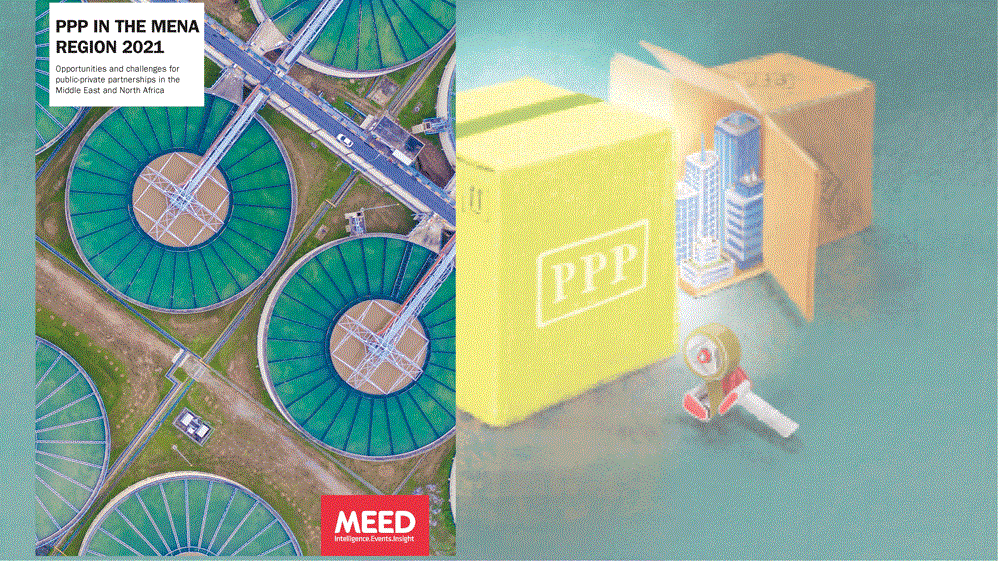

Infrastructure is emerging as an alternative investment market in the Middle East and North Africa (Mena) region and it could result in public-private partnership (PPP) projects becoming among the most reliable sources of new business opportunities for construction companies.
The need for infrastructure
 Installing world-class infrastructure and delivering effective public services are central to national agendas across the region, as governments strive to meet the needs of growing populations.
Installing world-class infrastructure and delivering effective public services are central to national agendas across the region, as governments strive to meet the needs of growing populations.
Equally important is the need to increase the role of the private sector in driving growth and creating jobs.
Executed properly, PPPs will deliver these goals.
PPPs provide a model that allows governments to continue developing strategic national projects and services without the need to increase direct state capital spending,
At the same time, a reliable flow of commercially attractive PPP projects will stimulate private investment and ensure that strategic performance targets to improve services and reduce waste are achieved.
Lack of traction
But despite these compelling selling points, PPPs have largely failed to gain traction in the region outside the electricity sector. There are many reasons for this.
Lack of capacity. Lack of track record. Failure to provide bankable projects that are attractive to investors. And so on.
But the biggest factor has been a lack of political will to move to PPP. There has been no urgent need to hand over state assets to private developers.
This has changed.
Since 2015, weak oil prices have had a significant impact on the revenues of oil-producing countries, particularly those in the GCC.
In 2020, Covid-19 applied breaking strain to the regional economies, and traditional public spending trends are being reviewed and cut back.
Historically, governments have invested heavily in infrastructure projects and public assets such as hospitals, schools, transport and more.
In the post-Covid-19 world, new forms of project finance are required.
Countries that do not already have PPP legislation in place are moving hastily to prepare frameworks, while those that do are drawing up significant pipelines of projects to take to the market
New dawn for PPP
Governments across the Mena region are turning their focus to alternative project finance solutions, and PPP contracts are taking shape across the region, perhaps most notably schools projects in Saudi Arabia, healthcare in Kuwait, and water and power projects in Qatar.
In early 2020, Abu Dhabi announced its intention to tender $2.7bn in PPP projects to finance and operate new social, municipal and transportation assets.
For contractors, consultants and anyone else involved in the region’s construction and infrastructure industry, PPP is arguably the most exciting and lucrative source of new business opportunities around.
Countries that do not already have PPP legislation in place are moving hastily to prepare frameworks, while those that do are drawing up significant pipelines of projects to take to the market. Some schemes are being tendered even before legislation is put in place.
Challenges remain
It will not be easy and the latest push towards PPP must avoid the pitfalls of the past to succeed. Selecting appropriate and bankable projects will be key, as will building up institutional capacity and developing a body of skilled civil servants.
To accompany MEED's Middle East and North Africa PPP Virtual Think Tank, MEED Insight has launched a new research report looking at the outlook for PPP in the region.
PPP in the Middle East and North Africa 2021 provides a comprehensive review of the region’s growing PPP market and assesses the outlook, opportunities and challenges for PPP in the region.
PPP in the Middle East and North Africa 2021 details the various legal frameworks being set up, the project pipeline in each country and the challenges involved in contracting successful PPP projects.
For more information on PPP in the Middle East and North Africa 2021, click here.

> Bahrain: Manama ramps up its PPP plans
> Egypt: Mixed results for Egyptian PPPs
> Iraq: Crises and protests curb Iraq PPPs
> Jordan: Construction sector eyes PPP opportunities
> Kuwait: Corner turned on water and power schemes
> Lebanon: PPPs offer route to recovery
> Morocco: Rabat reforms legislation to spur PPPs
> Oman: Muscat risks PPP confidence loss
> Saudi Arabia: Riyadh refocuses PPP plans
> Tunisia: PPP plans draw broad support
> UAE: PPPs expected to take off in UAE
> Other GCC: Gulf state bolsters legislation to drive PPPs
You might also like...

TotalEnergies to acquire remaining 50% SapuraOMV stake
26 April 2024

Hyundai E&C breaks ground on Jafurah gas project
26 April 2024

Abu Dhabi signs air taxi deals
26 April 2024

Spanish developer to invest in Saudi housing
26 April 2024
A MEED Subscription...
Subscribe or upgrade your current MEED.com package to support your strategic planning with the MENA region’s best source of business information. Proceed to our online shop below to find out more about the features in each package.





